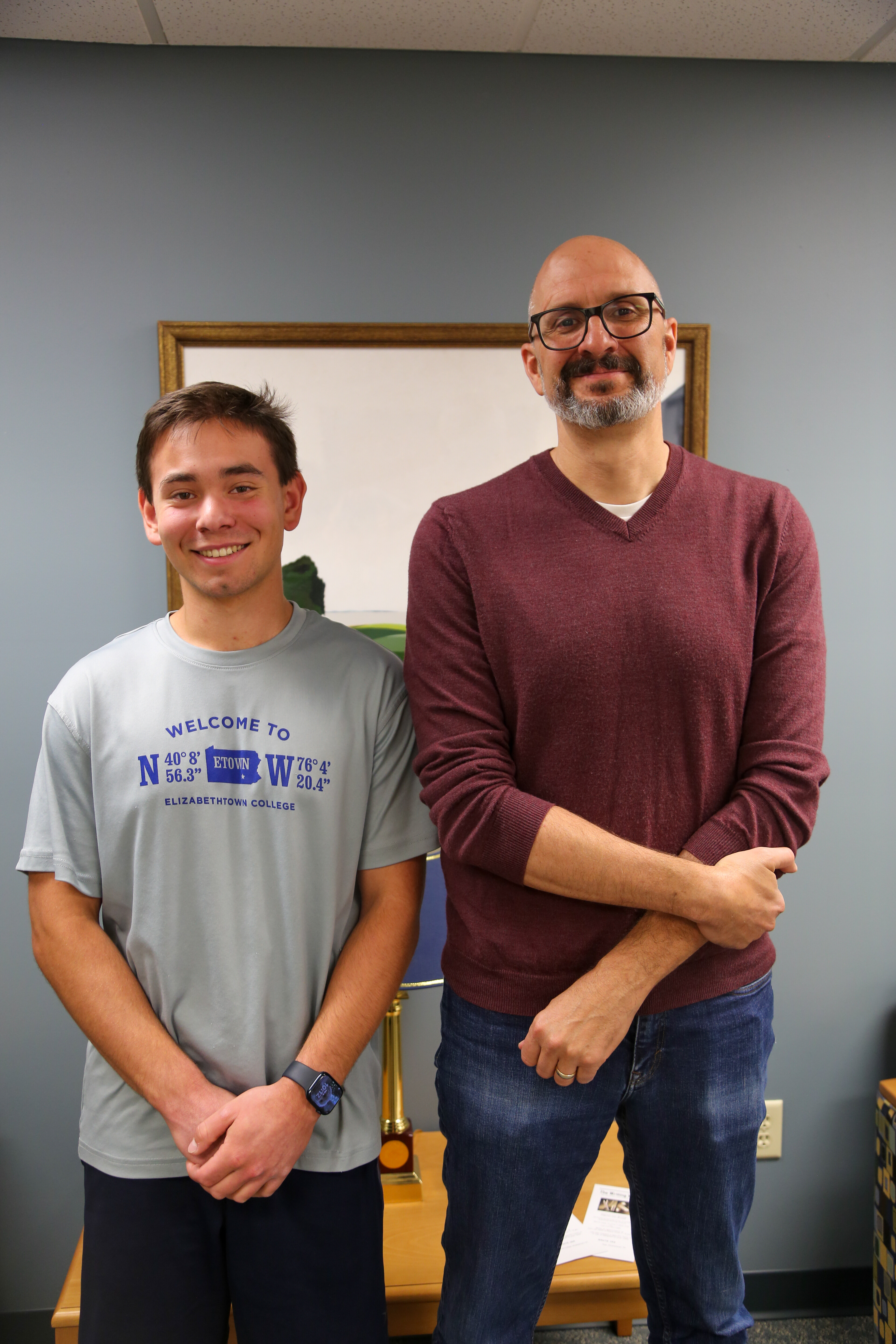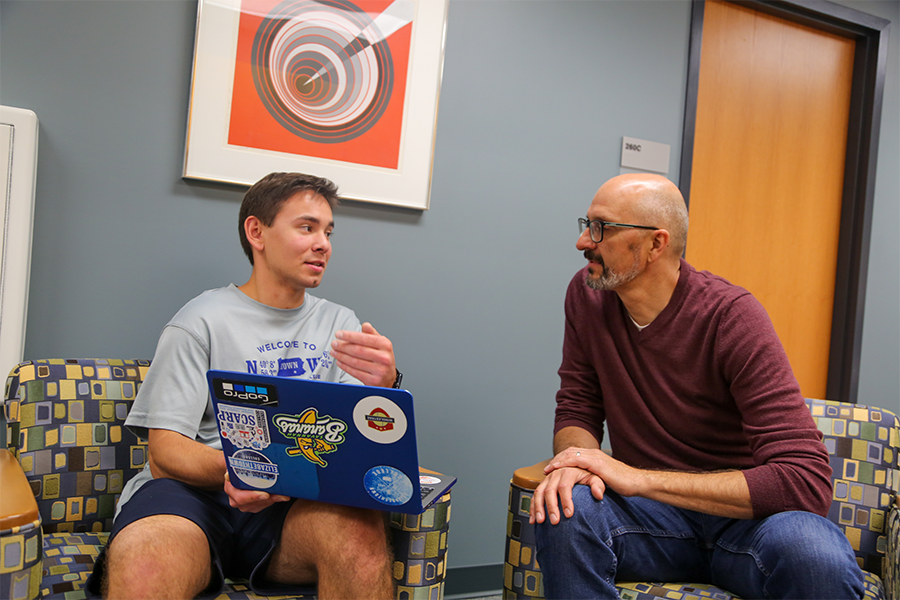Elizabethtown College Psychology major Ryan Ramler ’25 is coordinating a study this summer as part of the Elizabethtown College Summer Creative Arts and Research Program (SCARP) to determine the psychology behind why individuals have predetermined judgments about others based on their physical features.
Ramler has been working with Etown faculty mentor and Assistant Professor of Psychology Michael Roy, creating and conducting a survey that was sent to the campus community to collect data on what participants believe the height and weight are of 10 different individuals from a database based on first impression. Ramler and Roy will then conduct a follow-up study in an effort to remove personal bias, as physical features have been shown to factor into people’s judgments of each other.
Their goal after the research is concluded is to have a manuscript of the collected data published at the end of the summer.
Title of Research
Self as Anchor in Judgements of Height and Weight
Student Researcher
Ryan Ramler ’25 (Psychology major)
Faculty Mentor
Michael Roy, Ph.D., Assistant Professor of Psychology
What are you researching?
Ramler: How do we as people see others? We can physically not see others perfectly. The current study is looking into if the self acts as an anchor when judging the height and weight of other people. Anchoring effects are what they sound like; what is subconsciously holding us down and what are we using to influence our judgments of others? What we are looking into is where anchoring effects are when people judge others’ height and weight. What types of people are more biased? What types of people are not more biased? The study at hand aims to discover what types of people are more anchored to their own height and weight when judging others.
Why did you choose this topic?
Ramler: When I initially inquired about participating in SCARP, Dr. Roy told me about this project, and I thought it sounded interesting. I read more about the project and became really interested in what anchoring effects are and how the self can potentially be used as an anchor when judging other people’s height and weight.
What is the most interesting aspect of this research?
Ramler: The most interesting aspect of this research is figuring out where bias lies in people groups. I think it is fascinating that there are so many people in the world, yet these biases and effects are invisible. Uncovering bias and seeing where yourself can be used as an anchor in judgment of height and weight will be telling, and will help us in so many ways down the line.
How has your staff mentor helped you?
Ramler: Dr. Roy has been a big help in every way but has also given me freedom on the project. Dr. Roy taught me how to execute everything and during previous studies, he also allowed me to have a say and work with him to further develop what we would use in this study. Dr. Roy gave me the freedom to create a survey for the study on a website called PsyToolKit, which is a psychology-specific experiment and survey builder. I learned how to code and work through that to build a survey. He has given great feedback and helped me to learn how to develop a quality survey to conduct research. Dr. Roy is an amazing mentor and has really enforced what I have learned these past few years in class.
Hear from the faculty mentor – Michael Roy
“It has been a pleasure working with Ryan,” Roy said. “He is hard-working and conscientious. The amount of work that he has already done is truly impressive.
“I think the SCARP program is beneficial to both the students I work with and myself. They get a chance to learn how to complete a research project from beginning to end and I get a chance to really focus on research. It is a win-win situation.”

